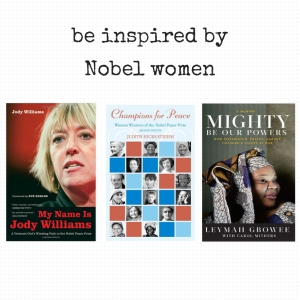
Readings for 29th Sunday in Ordinary Time: EX 17: 8-13; PS 121: 1-8; 2 TM 3:14-4:2; LK 18: 1-8; http://usccb.org/bible/readings/102013.cfm
Medea Benjamin is a peace activist and founder of Code Pink. In May of this year, she interrupted a speech by President Obama about the closing of Guantanamo Bay. Four times during his speech, she reminded the president that as chief executive he had the power to close the prison as he had promised during his campaign of 2008. The president was forced to acknowledge Benjamin’s point, but held that the issue was more complicated than she made it out to be. Clearly her outspokenness called for great courage and exposed to an international audience President Obama’s failure to keep his word. It pressured the president to change policy.
_____
Elizabeth Warren is the Democratic Senator from Massachusetts. Elected to the Senate in 2012, she is the first female senator from Massachusetts. Ms. Warren is a tireless consumer advocate and the first female Senator from Massachusetts. During her campaign, she called attention to the hypocrisy of “self-made men” claiming they owed nothing to government or community to explain their success. She said,
“There is nobody in this country who got rich on his own. Nobody. You built a factory out there — good for you. But I want to be clear. You moved your goods to market on the roads the rest of us paid for. You hired workers the rest of us paid to educate. You were safe in your factory because of police forces and fire forces that the rest of us paid for.….Now look. You built a factory and it turned into something terrific or a great idea — God Bless! Keep a Big Hunk of it. But part of the underlying social contract is you take a hunk of that and pay forward for the next kid who comes along.”
_____
Amy Goodman is a television journalist and host of “Democracy Now: the War and Peace Report” – a daily news hour on the Pacifica Radio and Television network. In the face of mainstream media’s refusal to cover significant grassroots events and issues, Ms. Goodman’s program has been called “probably the most significant progressive news institution that has come around in some time” (by professor and media critic Robert McChesney.) In addition to OpEdNews, “Democracy Now” is an invaluable daily source of information for the well-informed. It is an example of what can be accomplished for peace and social justice in the face of overwhelming odds.
_____
Keep in mind the examples of Medea Benjamin, Elizabeth Warren, and Amy Goodman as we attempt to understand today’s liturgy of the word. Our readings raise the issue of prayer, and what it means (in Jesus’ words) to “pray always without ceasing.”
Actually, the readings compare what might be termed “men’s way of praying” with women’s. At least in today’s readings, men pray that God might intervene to slaughter their enemies. In contrast, the woman in today’s gospel confronts the power structure of her day as her way of praying. That is, she persistently works to bring her world into harmony with God’s justice.
Take that first reading from Exodus. . . . Did it make you raise your eyebrows? It should have. It’s about God facilitating mass slaughter. It tells the story of Moses praying during a battle against the King of Amalek. It’s a classic etiology evidently meant to explain a chair-like rock formation near a site remembered as an early Hebrew battleground.
“What means this formation?” would have been the question inspiring this explanatory folk tale. “Well,” came the answer, “Long ago when our enemy Amelek attacked our people, Moses told Joshua to raise an elite corps of fighters. During the course of the ensuing battle, Moses watched from this very place where we are standing accompanied by his brother Aaron and another friend called Hur.
Moses raised his hands in prayer during the day-long battle. And as long as he did so, Joshua’s troops got the better of Amalek’s. But Moses would get tired from time to time; so he’d lower his hands. When he did so, Amalek’s troops got the better of Joshua’s.
“To solve the problem, Aaron and Hur sat Moses down on this stone you see before us. They held up his arms during the entire battle. That strategy saved the day. Joshua won his battle “mowing down Amelek and his people.”
So here we have a God who responds to ad hoc prayers and reverses history so that one group of his children might “mow down” another group of people he supposedly loves. Hmmm. . . .
In today’s gospel, Jesus has another approach to prayer. For him, prayer is not an ad hoc affair – about changing God’s mind. Rather, praying always represents the adoption of an attitude that consistently seeks justice for the oppressed. Praying always means living from a place that won’t let go of justice concerns like those that drive Medea Benjamin, Elizabeth Warren and Amy Goodman.
To illustrate that point for his own time, Jesus tells a comic parable about a persistent woman. (Remember, he’s speaking to people who have no power in a legal system, which, like ours favors the wealthy and powerful.)
“Imagine a judge,” Jesus said. “He’s like most of the judges we know. He doesn’t give a damn about the God of the poor, and he doesn’t care what people like us think of him.” (Already Jesus’ audience is smiling seeing a funny story coming.)
“But then along comes this widow-woman. Like all of us, she’s poor, and as usual, the judge pays no attention to her.” (Jesus’ audience recognizes the syndrome; they nod to each other.)
“But this woman’s a nagger,” Jesus says. (Now his audience is snickering and chuckling.)
“She just won’t let go. And she’s strong and aggressive besides. She comes back day after day insisting that she get justice against her adversary. And as the days go by, she gets more and more insistent – and threatening. So much so that the judge starts getting worried about his own safety.
(Laughter from the crowd . . .)
“’While it is true,’ he says to himself, ‘that I neither fear God nor respect any human being, because this widow keeps bothering me I shall deliver a just decision for her lest she finally come and strike me.’”
In other words, this macho judge is afraid of this poor widow; he’s afraid she’ll come and beat him up!
Can you imagine Jesus saying that without smiling broadly – and without the crowd roaring in laughter?
Anyway, here’s Jesus point: “If an unjust judge responds to the prayer of the poor like that, how do you suppose the All-Parent will respond when we ask for justice? The All-Parent will respond swiftly, Jesus says, because that’s who God is – the one who (as Martin Luther King put it) has established an arc of history that bends towards justice.
Prayer, then, is about reminding ourselves of that fact, trusting and having faith that in the long run justice and truth will prevail. Taking that position in the face of overwhelming evidence to the contrary, takes great faith that’s harder and harder to find.
So Jesus ends his parable with the rhetorical question, “When the Son of Man returns, do you think he’ll find that kind of faith anywhere?”
What I’m suggesting here is that today we’re more likely to find that kind of faith, that kind of prayer, that kind of persistence in women rather than men. The example of social activist Medea Benjamin encourages us to find our voices in defense of the voiceless in U.S. prison camps throughout the world. Politician, Elizabeth Warren, calls us to pray always by calling into question received truths like those surrounding “self-made men.” Amy Goodman and her “War and Peace Report” inspire us to renounce ideas of God that call us to “mow our enemies down.”
Thank God for persistent women! We men have an awful lot to learn from them.



